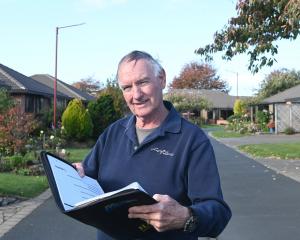Associate Prof Nick Wilson, of the Wellington campus, was contacted for comment about unusually early pockets of influenza this year.
Prof Wilson said it was possible climate change was affecting the usual season, which generally peaks in the middle of the year.
Warmer climates did not tend to have a peak.
''In tropical countries where the seasons aren't as dramatic, there's no strong winter peak. It's just spread out through the year.
''With climate change, who knows - we might move towards that more spread-out pattern. [Because of climate change], we've got to think about how disease patterns change as well.''
Asked if that meant the flu vaccination push might have to be sooner in the year, he said successive years of flu data would need to be analysed. Multiple cases of the H1N1 strain have been reported in several parts of the country recently.
The annual vaccination programme is in full swing.
Associate Health Minister Jo Goodhew, in a recent press release, said more than 654,000 flu jabs had been distributed. This was 10% more than the same time last year.
Mrs Goodhew said March 31 was day 36 of the 2014 influenza vaccination campaign ''and already we're over halfway to our target of 1.25 million doses by 31 July''.
''Flu vaccination is easier to get than ever. It's free from a GP for those 65 and over, pregnant women and people with long-term health conditions such as heart disease, stroke, diabetes, respiratory disease [including asthma], kidney disease and most cancers. Many workplaces offer free vaccination, and also GPs and now many pharmacists can provide it for a small charge.
''The best protection against influenza is immunisation. The strains included in this season's influenza vaccine are a good match to those strains in the recent northern hemisphere influenza season, including the H1N1 strain.''
While there was one possible case of H1N1 flu in Oamaru last month, the South appears to have missed the early run of flu.
Southern District Health Board medical officer of health Dr Keith Reid said this week the local health authority ''still'' had no reports of flu activity.
''We have approached seven practices across the district to provide surveillance in accordance with the national protocols, and are expecting to launch local surveillance on 28 April.''












